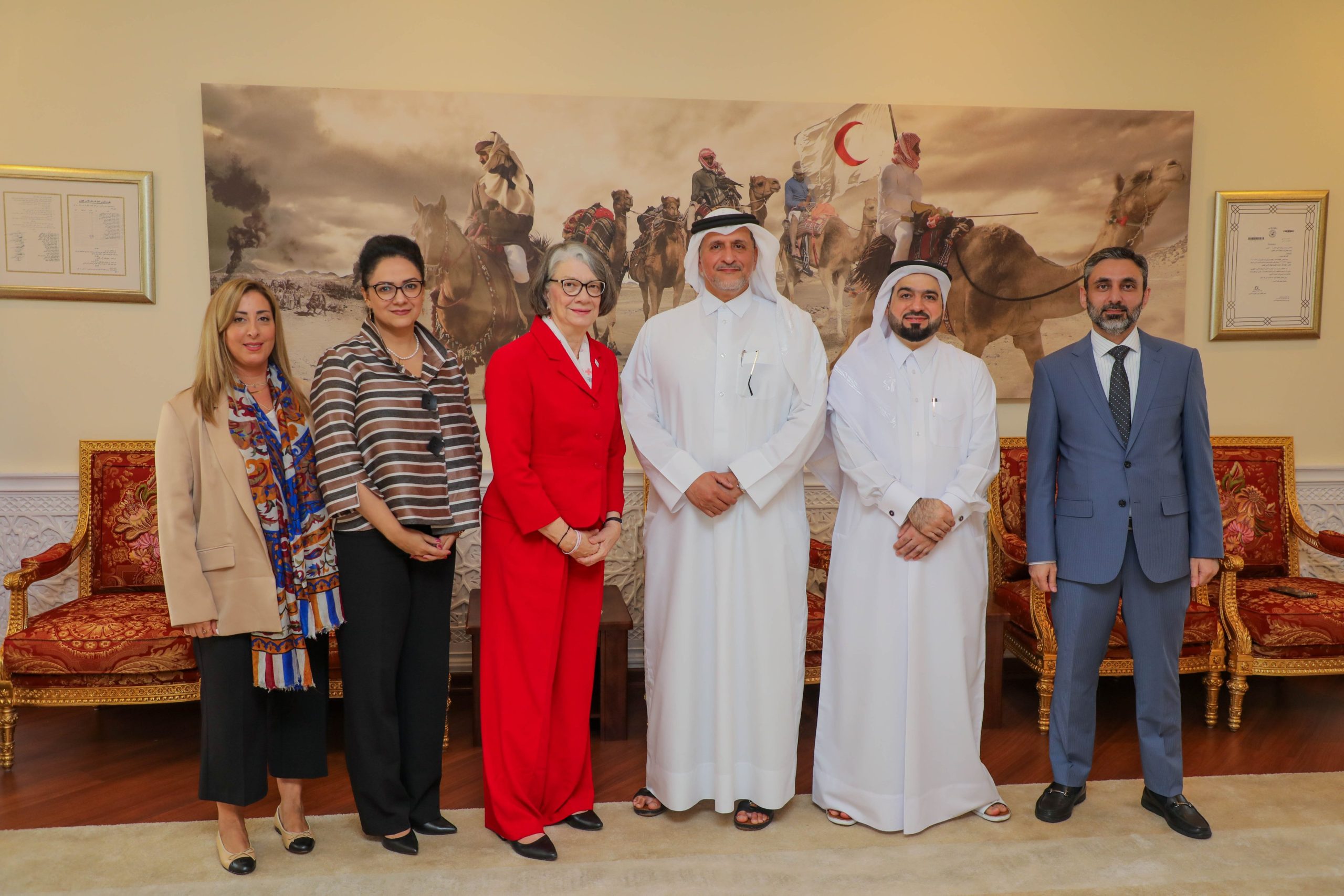The IFRC visit to QRCS focused on enhancing humanitarian responses and the need for stronger international frameworks to protect children in conflict zones.
Qatar Red Crescent Society (QRCS) has launched a two-day workshop to discuss humanitarian developments in the region and joint efforts to help victims of conflicts and humanitarian crises.
The workshop was attended by Kate Forbes, the president of the International Federation of Red Cross and Red Crescent Societies (IFRC), who praised the partnership between the two bodies.
Led by QRCS Secretary-General Faisal Mohamed Al-Emadi, the session covered several key humanitarian issues, and focused on regional and international efforts to aid conflict victims. It also addressed the challenges faced by field workers, and the use of artificial intelligence in humanitarian operations.
Discussions also included strengthening the role of national societies within the IFRC, and promoting humanitarian values among children.
A significant part of the meeting centred on the ongoing crises in the Gaza Strip and Sudan, emphasising the urgent need to end these conflicts and increase international pressure to prevent further violations.
Both parties also reviewed preparations for upcoming constitutional meetings and the election of the Standing Commission of the IFRC in Geneva this October.
Forbes praised Qatar’s leadership in humanitarian efforts during a separate event on September 10, organised to mark the 75th anniversary of the Geneva Conventions.
At a Tuesday exhibition titled “Dialogues on Humanity”, co-organised by the QRCS and the Swiss Embassy, she commended QRCS for its initiatives, particularly its health-related aid programmes.
Forbes also visited the QRCS-run Al Hemaila Health Center, which serves over 2,000 patients daily, and lauded the contributions of QRCS volunteers in disaster response across more than 50 countries, including their role during the COVID-19 pandemic.
On Monday, Forbes delivered a lecture titled “Protection of Children in Disasters, Emergencies, and Other Crises” at the Arab Center for Research and Policy Studies in Doha.
She highlighted the vulnerability of children in conflict zones, referencing a UNICEF report that nearly 400 million children worldwide live under such conditions. She also underlined the severe risks they face, including displacement, family separation, forced recruitment, and limited access to education and healthcare.
Forbes called for stronger legal frameworks and increased collaboration between international and local institutions to protect children.
She also pointed to the importance of integrating education into humanitarian response plans, stating that safe educational environments are essential for securing a stable future for affected children.
Additionally, she addressed the growing impact of climate change on children, noting it as a new challenge that requires global attention.







